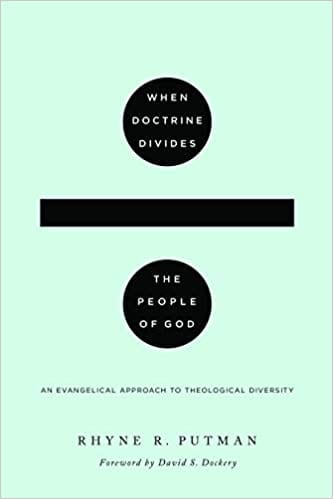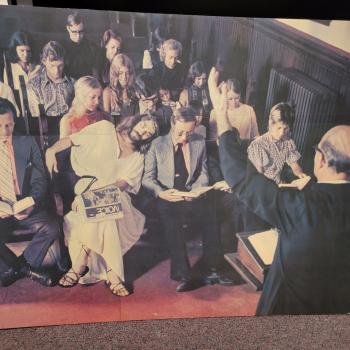BEN: I especially appreciated your chapter on epistemology, but one thing I noticed missing was the issue of basic intelligence. Not all human beings have the same wattage when it comes to brain power. This is just a fact. I’ve run into far too many smart alecks who are not that smart who are overcome with the exuberance of their own verbosity, and have a far too high opinion of their native intelligence. It’s a sad sight in the Evangelical world where we are supposed to model humility and a teachable spirit. I’ve often also seen the default for such folks being ‘well it’s just a matter of common sense’ or ‘if it’s too complex for me to grasp, then it’s probably not that important’. It is difficult to have a conversation with a person who is overly defensive about their abilities, and finds any challenge to their ideas as an opportunity to be adversarial and bombastic. Worse still, for too many of them you are worried about damaging their eggshell fragile faith by questioning some of their ideas or assertions. Since I know you’ve encountered such folk, how do you handle such low wattage believers???
RHYNE: I do talk a little bit about human intelligence in chapter two. Sometimes education and expertise can help us overcome these cognitive limitations, but other times they cannot. These limitations contribute to the imperfections of our interpretations. One thing about intelligence, however: a person can be far more intelligent than us and still be an “epistemic inferior” on a matter of disagreement with us. For instance, I could walk the halls of the biology department at Oxford University and find men and women far more intelligent than me, including someone like Richard Dawkins. But simply having a higher IQ does not make him an epistemic peer in biblical and theological matters where he lacks sufficient training or background knowledge.
In churches and social media interactions, we also deal with the opposite problem, the people with the “low wattage” intellects who lack a teachable spirit and treat anyone who is an academic with suspicion. But this is broader than a Christian problem: In his book, The Death of Expertise, Tom Nichols has detailed the way internet sources and social media have changed the way a great many people think on topics today. People confuse access to information with expertise. This tendency is really clear in the middle of the COVID-19 crisis we are facing at the moment. We are a Google search away from finding some sort of documentary support for the position we want to be true (e.g., “Masks are ineffective and useless in preventing the spread of the coronavirus”), and any “authority” who disagrees with me isn’t trustworthy. There are no easy ways to address these people. The Proverbs have much to say about the fool in this vein. No amount of reasoning can shake them of their assertions.
But for those who are willing and able, four words can be very powerful for theological dialogue: “I could be wrong.” I want to display surrender to the authority of Scripture, not my interpretation of it, which ultimately means I can be convinced by Scripture or reason to change my positions. Intellectually honest people do these sorts of things from time to time if not frequently. Some armchair commentators on the internet seem to think the task of theology is beginning with the assumption that we know everything and working to tear everyone down who does not agree with us. Yet my goal is a theologian is to be a disciple of Jesus under the authority of Scripture. Where I am wrong, I desperately want to know it.

















